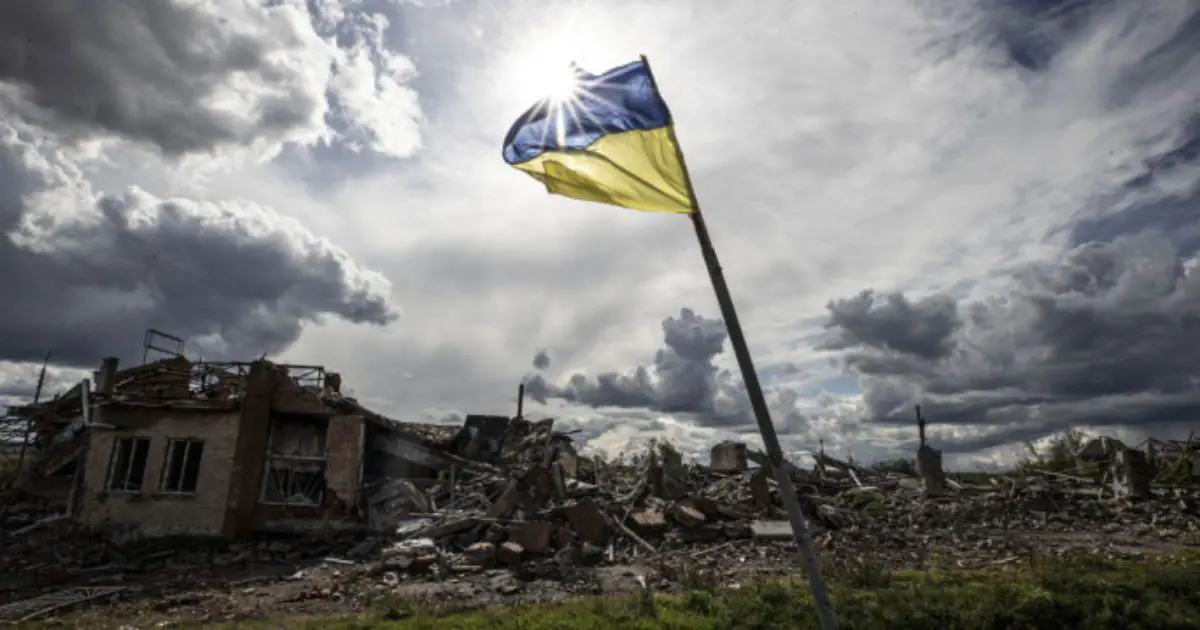Ukraine’s war and Iran’s aggression highlight the West’s increasing inability to fend off threats. In recent years, the geopolitical landscape has been marked by escalating tensions and confrontations, with Ukraine’s conflict and Iran’s aggression serving as poignant examples of the West’s increasing vulnerability to external threats. As these crises unfold, questions arise about the effectiveness of Western powers in deterring aggression and maintaining stability in an increasingly volatile world.
The Ukraine Crisis: A Test of Western Resolve
The ongoing conflict in Ukraine, stemming from Russia’s annexation of Crimea in 2014 and its subsequent support for separatist movements in Eastern Ukraine, has exposed the limitations of Western powers in responding to territorial aggression and violations of international law. Despite imposing sanctions and providing military assistance to Ukraine, the West has struggled to curb Russian expansionism and bring about a lasting resolution to the crisis.
The Ukraine conflict serves as a litmus test for the West’s ability to uphold the principles of sovereignty and territorial integrity in the face of external aggression. Despite vocal condemnations and diplomatic efforts, Western powers have been unable to deter Russia from pursuing its strategic objectives in Eastern Europe, raising doubts about the effectiveness of their deterrence capabilities.
Iran’s Provocations: Challenging Western Influence in the Middle East
In the Middle East, Iran’s assertive behavior and support for proxy groups have emerged as a key source of instability and insecurity for the region. From its involvement in the Syrian civil war to its support for militant groups like Hezbollah and Hamas, Iran’s actions have challenged Western influence and undermined efforts to promote peace and stability in the region.
The recent escalation of tensions between Iran and Western powers, particularly the United States, underscores the growing challenges faced by the West in containing Iran’s ambitions and deterring its destabilizing activities. Despite the imposition of economic sanctions and diplomatic pressure, Iran has continued to pursue its strategic objectives, testing the resolve of Western powers and highlighting their diminishing influence in the region.
Factors Contributing to Western Vulnerability
Several factors contribute to the West’s increasing vulnerability to external threats, ranging from shifting power dynamics to internal divisions and geopolitical constraints:
- Rising Authoritarianism: The resurgence of authoritarian regimes, led by Russia and China, has challenged the liberal democratic order and eroded Western influence on the global stage. These regimes exploit divisions within Western societies and leverage their economic and military capabilities to pursue their strategic objectives.
- Geopolitical Constraints: The multipolar nature of the international system, characterized by competing power centers and complex alliances, limits the ability of Western powers to act decisively in response to external threats. Conflicting interests and strategic calculations among major powers often undermine efforts to coordinate a unified response to crises.
- Military Overstretch: Years of military interventions and engagements in the Middle East and other regions have stretched Western armed forces thin, limiting their capacity to respond effectively to emerging threats and crises. Budgetary constraints and public wariness of further entanglements further constrain the West’s military options.
- Technological Challenges: The proliferation of advanced military technologies, including cyber weapons and unmanned aerial vehicles, has shifted the balance of power in favor of non-state actors and rogue states. Western powers must adapt to these new threats and develop innovative strategies to counter emerging challenges.

Ukraine’s war and Iran’s aggression highlight the West’s increasing inability to fend off threats.
The Way Forward: Reassessing Western Strategies and Priorities
In light of the growing challenges posed by Ukraine’s conflict and Iran’s aggression, Western powers must reassess their strategies and priorities to safeguard their interests and promote stability in an increasingly uncertain world:
- Strengthening Alliances: Western powers must strengthen alliances and partnerships with like-minded countries to enhance their collective security and deterrence capabilities. Multilateral cooperation and coordination are essential for addressing shared threats and promoting regional stability.
- Investing in Diplomacy: Diplomacy remains a critical tool for resolving conflicts and mitigating tensions in the international arena. Western powers must prioritize diplomatic engagement and dialogue to de-escalate crises and build trust with adversaries.
- Promoting Democratic Values: Upholding democratic values and human rights is essential for countering authoritarian regimes and promoting stability and prosperity around the world. Western powers must reaffirm their commitment to these principles and support democratic movements seeking to challenge oppressive regimes.
- Adapting to Technological Challenges: Western powers must invest in research and development to maintain technological superiority and address emerging security threats, including cyber warfare and hybrid tactics employed by adversaries. Innovation and adaptation are key to staying ahead in an increasingly complex security environment.
Conclusion: Navigating a Complex and Uncertain Future
As Ukraine’s conflict and Iran’s aggression highlight the West’s growing vulnerability to external threats, it is imperative for Western powers to reassess their strategies and priorities to navigate a complex and uncertain future. By strengthening alliances, investing in diplomacy, promoting democratic values, and adapting to technological challenges, the West can enhance its resilience and safeguard its interests in an ever-changing geopolitical landscape. Only through concerted and coordinated action can Western powers effectively confront the challenges of the 21st century and uphold the principles of peace, security, and prosperity for all.

